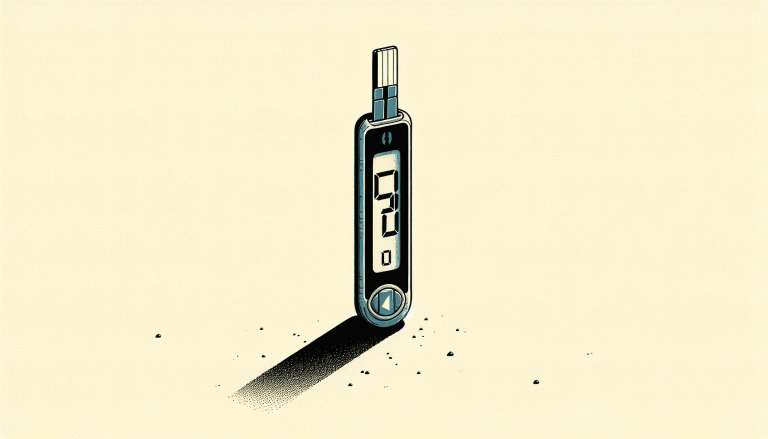How Much Sleep Do You Need By Age?
In our fast-paced and increasingly busy lives, the importance of a good night’s sleep cannot be overstated. But have you ever wondered how much sleep you actually need, based on your age? From newborn babies to older adults, the amount of sleep required varies greatly. Understanding these sleep needs can not only help you prioritize rest but also optimize your overall health and well-being. So, let’s dig into the fascinating subject of sleep and discover how much sleep you really need based on your age.
Infants (0-3 months)
Recommended amount of sleep
As a new parent, you may wonder just how much sleep your little bundle of joy actually needs. Well, for infants aged 0-3 months, the recommended amount of sleep is between 14-17 hours per day. However, it’s important to note that these hours are usually not consolidated into one long stretch. Instead, babies at this stage tend to sleep in short spurts, waking up frequently for feeding and diaper changes.
Sleep patterns and habits
During the first few months of their lives, infants have immature sleep-wake cycles. This means that they tend to have irregular sleep patterns and their sleep is often marked by frequent awakenings. It’s completely normal for your baby to wake up multiple times during the night and need your comfort and attention. As they grow, they will gradually develop more structured sleep patterns.
To help establish healthy sleep habits for your newborn, it’s crucial to create a soothing and calm sleep environment. Keep the room dimly lit and try to reduce noise disturbances. Additionally, establishing a consistent bedtime routine can also be beneficial. This can include activities such as bath time, gentle massages, and reading a bedtime story. By providing a nurturing environment and consistent routine, you can help encourage healthy sleep habits during this crucial developmental stage.
Infants (4-11 months)
Recommended amount of sleep
As your baby reaches 4-11 months of age, their sleep needs change slightly. At this stage, they require around 12-15 hours of sleep per day. Most infants will still have two to three naps during the day, which can range in length. This sleep schedule provides them with the necessary rest and rejuvenation their growing bodies and brains need.
Sleep patterns and habits
During this stage, your baby’s sleep patterns will likely become more structured. They may start to consolidate their sleep into longer stretches, with longer stretches of nighttime sleep and more predictable naptimes during the day. However, it’s normal for occasional disruptions to occur, such as teething, growth spurts, or developmental milestones, which may temporarily affect their sleep.
To support healthy sleep habits for your 4-11-month-old, it’s essential to establish a consistent sleep routine. This can involve elements such as a warm bath, getting into cozy pajamas, and reading or singing them a lullaby before placing them in their crib. By keeping a consistent routine, your baby will come to associate these rituals with sleep and feel more at ease when it’s time to wind down for the night.
Toddlers (1-2 years)
Recommended amount of sleep
As your little one becomes a toddler, their sleep needs continue to evolve. At this stage, toddlers typically need around 11-14 hours of sleep per day. Many children within this age range will transition from two naps to one nap during the day, usually lasting anywhere from 1-3 hours.
Sleep patterns and habits
Toddlers often experience episodes of increased independence and development, which can impact their sleep patterns. Some toddlers may resist bedtime or struggle with falling asleep due to newfound autonomy and curiosity about the world around them. Additionally, separation anxiety can also arise during this stage, making nighttime awakenings more common.
To ensure your toddler gets the restful sleep they need, it’s important to establish a consistent bedtime routine. This routine should include activities that promote relaxation and winding down, such as reading books together, listening to soft music, or engaging in gentle play. By providing a calming environment and a predictable routine, you can help set the stage for a good night’s sleep.

Preschoolers (3-5 years)
Recommended amount of sleep
As your child enters the preschool years, their sleep needs typically stabilize. Preschoolers still require around 10-13 hours of sleep per day to support their growth and development. At this stage, most children will transition to a single daytime nap, which usually lasts between 1-2 hours.
Sleep patterns and habits
Preschoolers are often filled with energy, curiosity, and new experiences, which can sometimes affect their sleep patterns. Nighttime fears or nightmares may occasionally disrupt their sleep, leading to bedtime resistance or night awakenings. Additionally, imaginative play and active minds can make it challenging for some children to wind down and prepare for sleep.
In order to establish healthy sleep patterns for your preschooler, it’s important to prioritize a consistent bedtime routine. This routine can involve activities that promote relaxation and calm, such as taking a warm bath, reading a book together, or engaging in quiet play. By following a predictable routine, your child’s body will naturally start to wind down as they anticipate restful sleep.
School-aged children (6-13 years)
Recommended amount of sleep
As children progress into the school-aged years, their sleep needs begin to stabilize at around 9-11 hours per night. While napping is less common at this stage, some children may still benefit from a short power nap after school to recharge.
Sleep patterns and habits
School-aged children lead increasingly busy lives, with academic demands, extracurricular activities, and social interactions. These factors can sometimes impact their sleep patterns and habits. Many children in this age range may experience difficulties falling asleep due to anxiety, peer interactions, or screen time before bed.
To ensure your school-aged child gets the optimal amount of sleep, it’s crucial to establish a regular sleep routine. This routine should include a standard bedtime, which allows for enough sleep before waking up for school. Encourage relaxation activities before bed, such as reading a book or practicing deep breathing exercises. Limiting screen time, especially close to bedtime, can also promote healthier sleep habits.
Teenagers (14-17 years)
Recommended amount of sleep
Teenagers have unique sleep needs due to their rapid physical and cognitive growth. The recommended amount of sleep for teenagers aged 14-17 years is around 8-10 hours per night.
Sleep patterns and habits
During adolescence, the circadian rhythm, or internal body clock, undergoes a shift. As a result, many teenagers naturally gravitate towards later bedtimes and later wake-up times. While this can be challenging to match with school schedules, it’s important to understand that their sleep patterns are biologically influenced.
Establishing healthy sleep habits during the teenage years can be crucial for their overall well-being. Encourage consistency in sleep schedules, even on weekends, to help regulate their body clock. Limiting caffeine intake, especially in the afternoon and evening, can also aid in maintaining healthy sleep patterns. Finally, promote an electronic curfew, encouraging teenagers to disconnect from devices at least one hour before bedtime for optimal sleep quality.
Young adults (18-25 years)
Recommended amount of sleep
As young adults begin to navigate the demands of higher education, work, and social commitments, their sleep needs remain consistent with those of teenagers. It is recommended that young adults aged 18-25 aim for 7-9 hours of sleep per night.
Sleep patterns and habits
During this transitional phase, many young adults experience a shift in their sleep patterns, as they may face increased stress, irregular schedules, or changes in living environments. Late-night studying, irregular work shifts, and social obligations can disrupt their sleep routines and affect the quality and duration of sleep.
To maintain healthy sleep habits, young adults should prioritize a regular sleep schedule as much as possible. Creating a sleep-friendly environment by ensuring a comfortable mattress and reducing external noise and light can greatly enhance sleep quality. Managing stress through relaxation techniques, such as meditation or gentle exercise, can also contribute to better sleep.
Adults (26-64 years)
Recommended amount of sleep
During adulthood, the recommended amount of sleep remains relatively consistent. Adults aged 26-64 years should aim for 7-9 hours of sleep per night to support their overall health and well-being.
Sleep patterns and habits
As adults navigate the various responsibilities and challenges of daily life, their sleep patterns can be influenced by factors such as work-related stress, family obligations, and lifestyle choices. Poor sleep hygiene, such as excessive caffeine consumption, irregular sleep schedules, or the use of electronic devices before bed, can contribute to sleep difficulties.
To maintain optimal sleep, adults should prioritize establishing a consistent sleep routine and creating a sleep-conducive bedroom environment. Relaxation techniques, such as taking a warm bath or practicing deep breathing exercises, can help prepare the mind and body for sleep. Additionally, it’s important to limit nighttime exposure to screens and electronic devices, as the blue light emitted can disrupt natural sleep patterns.
Older adults (65+ years)
Recommended amount of sleep
As individuals enter their later years, sleep patterns naturally change. Older adults aged 65 years and above are recommended to aim for 7-8 hours of sleep per night, although individual variations may occur.
Sleep patterns and habits
As we age, our bodies undergo physiological changes that can affect our sleep patterns. Older adults often experience more fragmented sleep, with more frequent nighttime awakenings and earlier morning awakenings. This fragmentation can lead to feeling less rested despite spending sufficient time in bed.
To promote healthy sleep for older adults, it’s important to establish consistent sleep routines and create a comfortable sleep environment. Regular exercise, within the limits of one’s capability, can also contribute to better sleep. If sleep difficulties persist, it’s advisable to consult a healthcare professional to address underlying factors that may contribute to disrupted sleep.
In conclusion, the amount of sleep needed varies across different stages of life. From the early months of infancy to the golden years of older adulthood, sleep plays a vital role in our well-being. By understanding the recommended sleep amounts and creating healthy sleep habits at each stage, you can optimize your sleep and wake up feeling refreshed and ready to take on the world. So take care of yourself, prioritize your sleep, and enjoy the benefits of a well-rested mind and body.
Additional Resources

This video explains how brilliant scientists managed to fix insomnia, lack of sleep and 30 other types of sleep disorders.
It was the biggest trial ever run on 7,000 people, from mild to severe insomnia.







